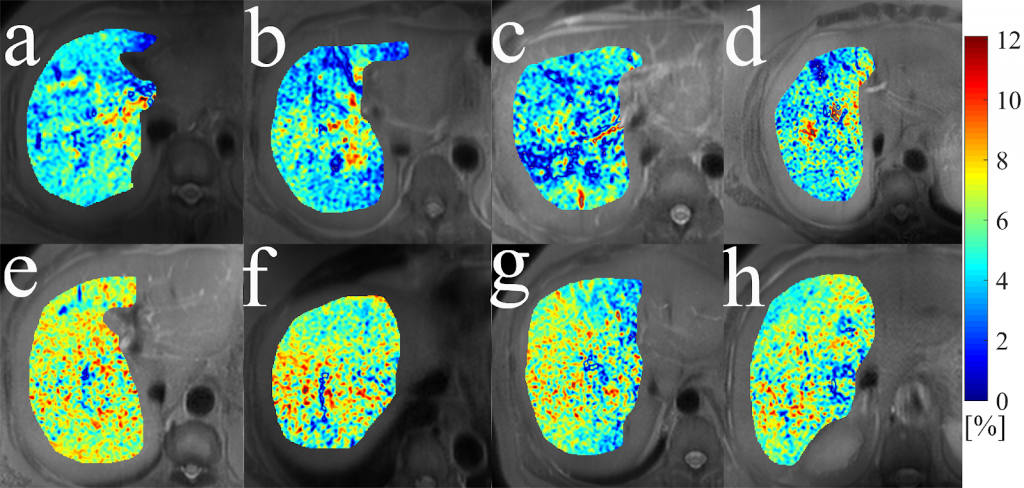The physics of magnetic resonance makes it feasible to use MRI to non-invasively detect metabolites and macromolecules changes in human tissues without injecting any contrast agent. Such biochemical imaging techniques provide valuable diagnostic information beyond standard anatomical imaging and is very useful for early-diagnosis and treatment monitoring of diseases. Compared to the conventional technology, the spin-lock MRI has unique advantages for non-invasive biochemical imaging. We developed quantitative spin-lock MRI for fast and robust biochemical imaging of human tissues. Our technology is convenient to use. Preliminary clinical studies show our technology is promising for detection of early-stage liver fibrosis. The technology also has potential to improve diagnosis of various diseases and help their clinical management.

Uniqueness and Competitive Advantages:
- Non-invasive, no ionized radiation, and no need to inject contrast agent
- Runs on standard clinical MRI scanners and does not need any extra hardware
- Fast scan
- Convenient workflow
